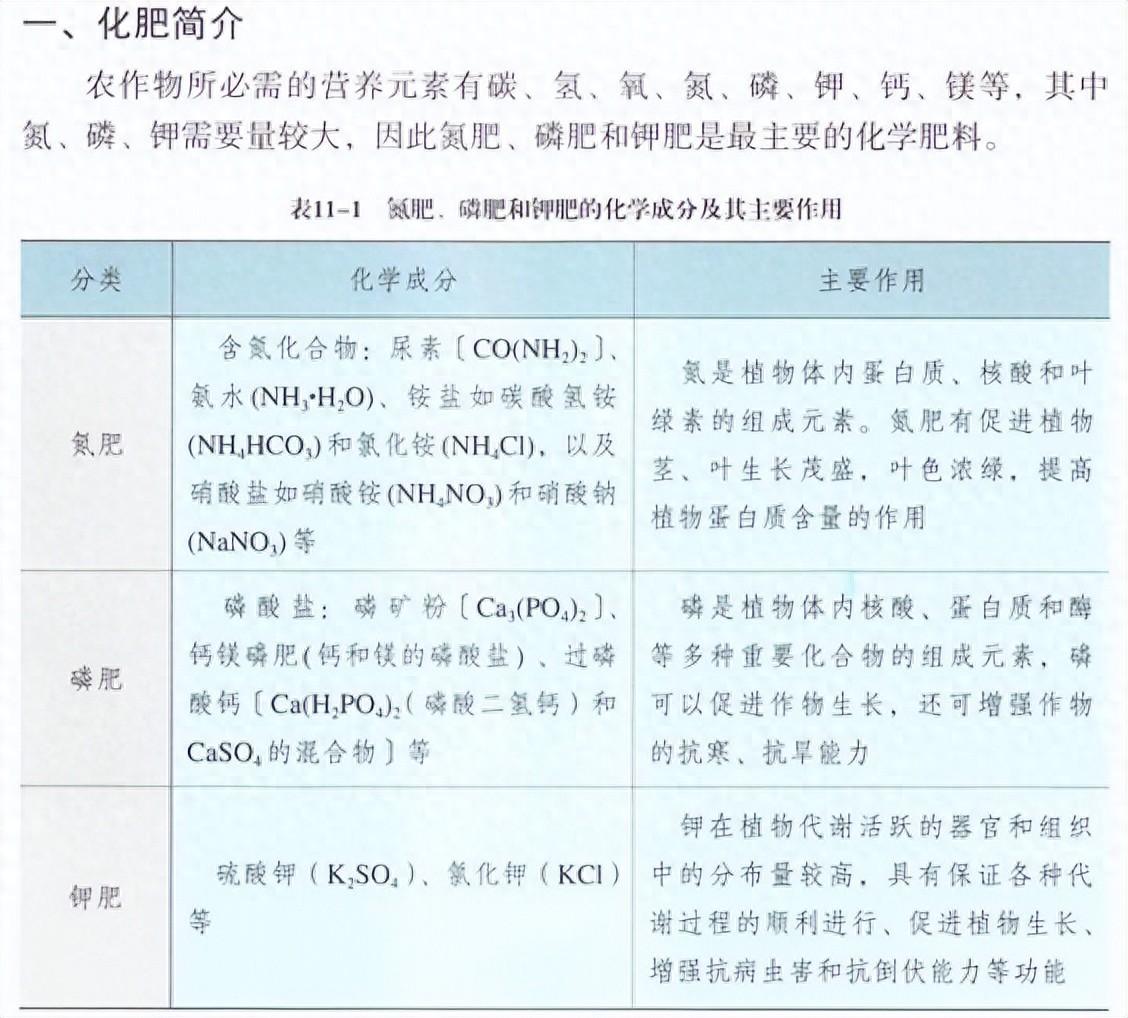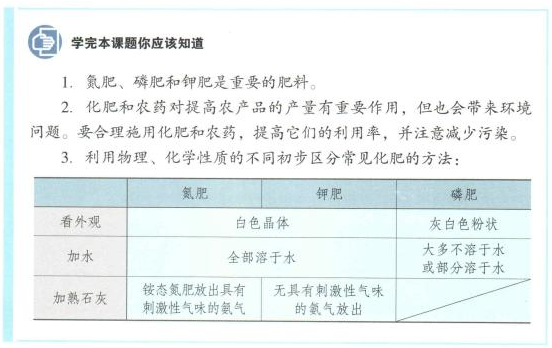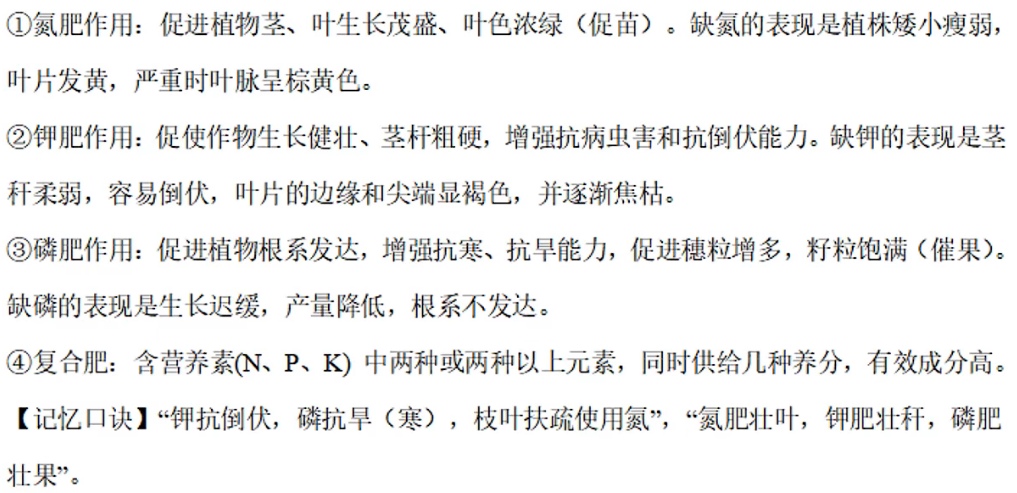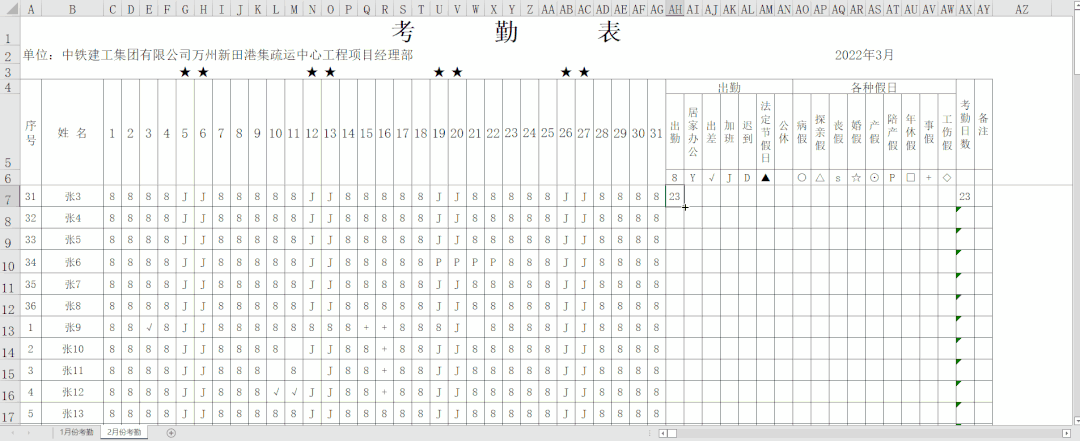juvenile怎么读,用简单的方法记易混淆的单词
英语中,有相当数量的单词由于其拼写、发音近似但意思不同造成学习的一大困境。好消息是,这些容易混淆的单词即使对母语人士来说也一样头疼,甚至一些名人名家、报刊杂志网络也经常把它们搞混。不过,从严谨的角度出发,我们必须把它们搞清楚。这个栏目会介绍一些方法来对付这些问题,比如“联系记忆法”、“例句法”等等,这些方法会在其后一一详述。
Anxious/eager
这二个形容词都有“急”的意思,区别是前者为坏事所急,后者急等好事的发生。例句:The bad news makes him anxious/ She is eager to see her lover.
Comprise/consist/compose
这几个动词都有“组成”之意。例句:The whole comprises the parts and the parts compose the whole.
Avoid using “be comprised of” but “be composed of”
Consist of 一般用于主动:Carbon dioxide consists of carbons and oxygen.
Imply/infer
这两个动词都含有“暗示,推测”的意思。例句:I imply and you infer. “我暗示,你推测”。
Podium/lectern
这两个名词都有“讲台”的意思。例句:You stand on a podium and you speak from lectern.
daunt(v.威吓),undaunted(adj.大无畏的),vaunt(v.自夸),taunt(v.嘲讽), gaunt(adj.憔悴的),flaunt(v.炫耀), haunt(v.出没;作祟) 。这几个词的共性是都有aunt这串字母组合,但这又不是词根,如何记?
我自编了一段话:
My gaunt and undaunted aunt is taunted for her flaunting and vaunting her haunted house.
我那瘦骨嶙峋而又无所畏惧的姨妈被人嘲笑,因为她老是炫耀和自夸自己那幢闹鬼的房子。
这就是我前面提到的“例句法”
Instance/incidence/incident
这三个词都主要用作名词,instance的意思是“事例”,比如for instance;incidence是(事情)发生的频率;incident是事件。
举例:The incidence of something might be determined by how many incidents.
Disinterested/uninterested
即使英语是母语的人也有很多人分不清这两者的异同。在一份公开的民意调查中,就堂而皇之地出现过“ **%的人对政治disinterested”,它本来是想说有多少比例的人对政治“不感兴趣”,但是却用错了词。“不感兴趣” 的英文是uninterested,而disinterested的意思是“没有私利的”。
举例:A disinterested person is one who has no stake in something while an uninterested person is one who doesn’t care.
Uninterested is unconcerned. (用两个含同样字母的单词组成一个句子,让这两个单词形成联系,从而辅助进行记忆,这就是我所说的“联系记忆法”,即你记住了unconcerned,就记住了uninterested,都表示“不关心”)
Verdict/ruling
这两个词,从字面上看都是“判决”的意思,但区别是:
Judge can never make verdict, but rulings. Jury can render verdict.
对不熟悉西方法律体系的人来说,必须要知道的一个事实是,只有陪审团才能做出verdict(裁决,即有罪还是无罪),而法官做出的是ruling(判决,具体的刑期等等)。
Loathe/loath
这两个词一点关联都没有,虽然长得很像。
Loathe是动词,“讨厌”的意思,e.g. I loathe her.
Loath是形容词,“勉强的”意思,e.g. He is loath to take an oath.
illicit/illegall/illegitimate
咋一看,三者都有“非法的,违法的”意思,区别在哪里?
All illegal things are illicit, but not all illicit things are illegal.
也就是说,illegal是“违法的”,但illicit不一定,也可能是“违背风俗的”,另外illicit还有clandestine“秘密的,偷偷摸摸的”意思。
illegitimate是“私生的”、“庶出的”、“不合理的”,其反义词legitimate是“嫡出的”、“正统的”、“合理的”E.g. legitimate concern合理的担忧
Afflict/inflict
用作动词,二者都有表示“打击”的意思,意思接近,但不是没有区别:
Try this: I am afflicted with something terrible, so I inflict injuries upon others.
注意:afflict后面通常会跟介词with,然后接宾语;inflict后面不直接跟“被打击者”,而是agent of suffering,比如pain, injury, defeat等。
Allege/accuse allegation/accusation
这两组单词都有“指责、指控”的意思,区别相当subtle。一般而言,有根有据的指控用accuse/accusation这组,而未经证实的指责,指控就用allege/allegation这组。
Try this:
a. Jerry accused Smith of corruption with substantial evidences.
b. Jerry alleged Smith that he was involved incorruption, which couldn't be proven.
c. I didn’t have sexual relationships with that woman…I never told anybody to lie, not a single time-never. These allegations are false.(克林顿在“拉链门”事件之后,矢口否认他的不当行为)
Arraign/convict
Arraign是传讯、提审的意思,尚未定罪
Convict是判定…有罪。二者的区别在于程序上的先后。
Instinct/intuition
Instinct可以译作“本能;天赋”,比如我们说,母性的本能maternal instinct,数学的天赋math instinct
Intuition可以译作“直觉”,所谓直觉就是you have a feeling that something is true/false even you have no evidence to prove it。这个词的意思相当于gut feeling。
简言之,instinct是与生俱来的能力,而intuition是一种感觉。
Flounder/founder
这两个词仅一字之差,都很常用,但也常被误用。这里仅针对二者做动词进行区分。
Flounder意思是“挣扎”struggle;founder是“崩溃,坍塌”。简言之,flounder是摇摇欲坠,但还没有倒,founder是已经倒了。
Try this: If economy flounders, it struggles to recover from a recession; if it founders, it collapses into a depression.
Consent/assent
这二者都有“同意”的意思,基本上可以互换。但也不是完全没有区别,细微的差别在于:assent是一种泛指的同意,相当于agree;而consent还指在法律上的同意,显得更加正式。另外,同样是“同意”,assent带有“欣然同意”的意思,而consent则没有什么感情色彩。
Try this:
a. It’s ruled that without the consent of parent/guardian, using photo of an underage youth is against the law.
b. I assented to his request.
Home/house
这两个词,我相信大家都认识,但是不是都能区分它们的意思呢?
House的意思是“房子,家”,是一种物理意义上的家,即有形的,看得见,摸得着的家。Home是一种抽象意义上的家,还代表着一种关系、责任和情感的纽带。蔡琴有首歌,“没有男人的房子不算家”,如果翻译成英文,应该是A house without man is not home.就形象地区分了两者的意义。本头条号与微信公众号同号,更多内容敬请关注。
Statue/statute
这两个词的词根都是sta即stand的意思,雕像是“站立”的,法规也是“站立”的-立在那里让人遵循。考虑到法规比雕像等级更高,因此statute(法规)比statue(雕像)多一个t。
Proscribe/prescribe(proscription/prescription)
这又是一对词根一样,但意思不同的单词。二者的前缀pro/pre都有表示“前面”的意思,词根scribe, scrip也都有“写”的意思。Prescribe可以理解成“事先写好”即“规定”(这个词还有“处方”的意思),proscribe可以理解成“丑话说前头”即“禁止” (这个词还有“流放、剥夺公民权”的意思,与banish同义)
Try this: to proscribe is to prohibit
Continual/continuous
这二者的区别比较细微,不少人将其interchangeably地使用,但并非不值得细究。
Continuous的意思是“不断的,一直不停的“,等于unceasing,如,continuous effort持续的努力;continuous rain下不停的雨;continuous noise持续的噪音;
continual的意思是”时断时续的,经常发生的”,等于happing again and again,如Continual reminder一再的提醒continual attempt多次的尝试。
Try this: continuous noise makes me anxious.
Continual attempt is normal
Aboard/abroad
Aboard做副词用,意思是“在船(火车、汽车)上;登机、上车”等等。
如All aboard!上船(车)啦!登机啦。记这个词的关键是要知道board有“甲板、木板”的意思,上船就是上甲板。
Abroad做副词用,意思是“在国(海)外”
如go abroad“去国外”记这个词的关键在于知道abroad=ab+road,字面上看就是“道路以外的”,到国外去,就是离开本土的路,去走外国的路。
Sensual/sensuous
这两个词的词根都是sens,都带有“感官;感觉”的意思。Sensual的意思偏“肉欲的;性感的”,跟sexual互通声息;sensuous偏“快感的;美感的”,不一定都是性感的,比如你看了一部电影,听了一首歌,欣赏了一幅画,感觉“很爽”,都可以用sensuous,而不是sensual。
Try this: sensual is sexual.
Tortuous/torturous
这两个词的词根都是tort,带有“扭曲”的意思,而且发音相同。Tortuous是“曲折的”,而torturous是“折磨人的”
Try this: The tortuous path to economic recovery can be torturous.
Abstinence/continence
这二者做名词讲区别相当微妙,都有“禁(食、欲、酒)”的含义。区别在于,continence是voluntary即自愿的“禁”,因为词根中有con即“一起”的含义,大家都同意的,所以我们就自愿这么做了,相当于self-constraint。另一个理解continence的角度是它的反义词incontinence“失禁”,失禁就是控制不住,比如你的bladder, bowel等等;而abstinence的“禁”是一种社会习俗,你愿意也好,不愿意也罢,都必须这么做,比如某些宗教规定的“斋戒;禁食”等,这是period of abstinence。
Historic/historical
Historic是“有历史意义的”,historical是“和历史有关的”
Try this:
historic building 有历史意义的建筑;historic events 有历史意义的事件
historical material史料,historical facts 史实, historical fiction历史小说
baneful/baleful
这两个词都有“有害的”(harmful)之意,区别相当细微。我们先来看baneful,其中,bane的意思是“祸害;祸根”,这个词的准确意思是“有害且已经造成损害的”,比如baneful effect of a policy。Baleful同样表示有害,但这个“害”是menacing or foreshadows evil,有“尚未发生、预示着有害的”含义在其中,如baleful look, baleful star (灾星)本头条号与微信公众号同号,更多内容敬请关注。
Altercation/alteration
这两个词的意思完全不同,做名词讲,alteration是改变,相当于change,altercation是争吵,相当于argument.它们的词根完全一样,都是alter(另一个=other)。怎么区分?我也没有更好的办法,只想到一个:alteration可以看成是alter+ration, ration是口粮、定量的意思,那么,所谓“改变”就是把原先的口粮变成了另外的分量。
Try this: If you change my ration, it’s alteration; we’ll have an altercation for this.
Ensure/assure/insure
Ensure=make sure
Assure=guarantee
Insure=protect against loss
Try this: I’m insured so I assure you that I will do everything to ensure the safety.
我已投保,所以我向你保证我会尽力确保安全
Appraise/apprise
To appraise (ap+praise) means to evaluate and to apprise means to tell.
Try this: If your boss appraise you, you hope for praise; If you apprise someone of a situation, you might also have to advise her on what to do.
Anticipate/predict/forecast
这三个词都带有“预测”的意思。Anticipate是基于一定事实的预测,predict则多少有些“猜”的成分在其中,forecast仅仅用于天气预报,(weather forecast)。另外,prediction的意思跟prophecy 接近,都有“预言”的意思。
a. We anticipate an increase of about 30% in sales.
b. Some people predict that Chinese will replace English as the international language in the future.
Compare/contrast
Compare既比较相同,也比较不同
Contrast仅仅比较不同
Try this: contrast is to look contrary; compare is to find peer.
Query/inquiry
这两个词都带有“询问;疑问;查询”的意思,即request for information,词根都是que,相当于seek.但是,inquiry更加正式,更加官方,比如The police are pursuing a new line of inquiry.而query只是一般的了解,比如,I have a query about my order.
Try this: query is a question. Inquiry is an official investigation.
Decent/descent
这两个词,词性不同,意思也千差万别,但由于长相雷同,经常容易混淆。
Decent重音在第一个音节,这是个形容词,“正派的,体面的”意思。Try this: decent gent体面的绅士。
Descent重音在第二个音节上,名词,词根是scen(爬),那么朝下爬,就是“下降;血统”,跟descendant(后裔;子孙)是一类的。这个词也可以做动词,“除味”的意思,因为scent是“味道”,加个de表示否定,即没有味道。味道一般都是从下面散发出来的,我想,这大概就是这个词有这两个含义的原因吧。
Lumber/lumbar
这两个词发音一样,但意思十万八千里。Lumber,是“木材;伐木”,lumbar,是“腰椎;腰部的”。
Try this: Lumber is timber; lumbar is like a bar holding your loin.
Decry/descry
这两个词长相接近,都有个cry在其中,但意思完全不同。Decry是de+cry,字面上是 “大声喊叫”,实际意思是“谴责”;而descry是“察觉;发现”相当于see。
Try this: to decry is to cry out and to descry is to discover.
All ready/already
这一组的意思不是一回事,但经常会被写错。All ready表示“都准备好了”, already是“已经”。
Try this:
a. Call me when you are all ready to go.
b. By the time Mary arrived, they had already gone.
all together/altogether
这又是一组容易搞混的词,all together表示“同时”,simultaneously;altogether 表示“全部地”, entirely。记住下面的例句:本头条号与微信公众号同号,更多内容敬请关注。
You're altogether wrong about the six friends going all together to the dance; each is going separately.
Unredeemable/unredeemed
Unredeemable是“不可救药的;不能赎回的”,形容人的时候,可以等同于incurable。Unredeemed是“未得救的;未赎回的”。最近看的一本书中有这样的句子:
It is easy to interpret God differently or choose different individual and group stories of apparently unredeemed and unredeemable evil and suffering.
从我理解的宗教看,对于苦难,人人都是能得救的,即redeemed的,区别在于一些人得救了,一些人尚未得救,不是能不能的问题。比如你去当铺当了某件物品,理论上说,你都可以赎回。而对于罪孽,则有可救药和不可救药之分,对于不可救药的人来说,已经失去赎回的资格。好在世界上多数人只是“尚未得救unredeemed”而非“不能得救unredeemable”
Denote/connote/annotate
这一组的区分是个难点。先说denote和connote,二者都有“意味着”indicate和signify的意思。但是内在区别非常大。Denote是“字面上意味着”,而connote是“暗含意味”。比如:Winter denotes a season of the year, but connotes cold weather.
简单说,denote是“月亮坝耍刀-明砍(侃)”,而connote是皮里阳秋,不直说。
Annotate是add note,为…做注释
Denotation/connotation
这两个名词都有“含义;意指”。Denotation是字面的“含义”,connotation是内在的“含义”。
Try this: denotation is to declare; connotation is to conceal the meaning.
Judicious/judicial/judiciary
Judicious是指“(头脑)清醒的;(判断)明智的”
Judicial是指“司法的”,与judiciary近义
Try this: He is judicious and conscious.
Judicial relates to legal
Desert/dessert
Desert有两个发音,重音在第一个音节上的时候,是名词“沙漠”;重音在第二个音节上,是动词“抛弃”。难点是,这第二个发音与dessert完全一样,而dessert的意思是“餐后甜点”。
我们考察dessert的词根ser, sser发现,其意思是“服务”,派生出serve, service, disserve, disservice这些词,“餐后甜点”的字面意思是“用餐服务结束前的甜点”,也就是说,吃完后,客人应该离开了。因此,记这个词要想到“服务”
Perpetrate/perpetuate
Perpetrate的词根是perpe,跟“父亲”pater, patr是同根的,意思是“做”(父亲无所不能做),即perform。最早这个“做”无论好坏,现在多指“做(坏事)”。例句:perpetrate a crime犯罪
Perpetuate的词根是per(始终)+pet(寻找),即“使..永存;持续”。例句:Perpetuate a division使分裂持续, perpetuate a myth 让一个神话持续。本头条号与微信公众号同号,更多内容敬请关注。
Devolve/dissolve
Devolve的词根是volve,即“转动”,这个词的意思就是“下放(权力;即“转到下面”);转给”。例句:The house will devolve to his daughter.房子将转给他女儿;Devolve responsibility:下放责任。
Dissolve的词根是solve,即“松开”,这个词的意思是“溶解”。例句:Dissolve this tablet in water.将药片溶于水中
Venal/vernal
这两个词,我也曾长期记不住,直到从词根入手。
Venal的词根是ven,即买卖,同词根项下还有vend(贩售;vending machine 贩售机;vendor小贩)。Venal的意思是“贪污的”,贪污就是可以用金钱收买,因此跟ven就这么愉快地勾搭上了。
Vernal的词根是ver,即“绿色,青翠”。我一个学生目前在Vermont州读书,那就是一个“青山翠谷”的地方。同词根项下的verdant(翠绿的)
Clamp/cramp
Clamp的意思是“夹紧;钳制”.Try this: clamp the lamp把灯夹紧
Cramp的意思是“抽筋;痉挛”.Try this: cramp on the ramp在斜坡上抽筋了
Swelter/smolders
Swelter的意思是“热得发昏”,动词。例句:They sweltered in the sun.
Smolder(也写做smoulder)的意思是“闷烧;心头火起”,也是动词。例句:My anger smolders.
Flaunt/flout
Flaunt是动词,“炫耀;飘扬”,词根与flag相通,想着flag(旗),就想到“飘扬”,从而想到“炫耀”。Flaunt under the flag.在红旗下炫耀
Flout也是动词,“嘲笑”的意思。Flout a foul. 嘲笑犯规
Brandish/banish
Brandish是动词,“挥舞”的意思。Try this: brandish a brand. 挥舞一个品牌
Banish也是动词,“驱逐”的意思。Banish is to ban.驱逐就是禁止。
Economic/economical
Economic是“经济的”。Economic reform
Economical是“节约的”(在中文里面,这二者倒是一回事,经济就是节省嘛)。Try this: economical is frugal
avenge/revenge
这两个词都是“报仇;复仇”的意思,意思非常接近。大部分情况下可以互换。但也不是说完全没有差别。Avenge: strike back to obtain justice。这说明,avenge的报仇有“替天行道”的含义在其中;而Revenge的意思是 for the personal satisfaction,而且,它的前缀是re,有“重复”之意,更多体现了“你打我,我打回来,冤冤相报”的“报仇”
例句:
Avenge a murder by bringing the criminal to justice.
He revenged the murder of his father.
Solitude/loneliness/isolation
Solitude:“孤寂”,表示“我抛弃了世界”
loneliness:“孤独”,表示“世界抛弃了我”
Isolation:“孤立”,表示“一个人或一群人被另一群隔离”
按照上述理解,马尔克斯的《百年孤独》(One hundred years of Solitude),应译作《百年孤寂》。汉娜•阿伦特在其巨制的《极权主义》一书中对这三个词进行了上述比较。读过《百年孤独》的人应该看得出来,是布恩迪亚家族“抛弃了世界”,主动选择遗世而居,而不是相反,所以原著的英文名和西班牙文用Solitude用得十分精当。
Need/want
Need(需求):Things we need to live and survive, such as air, water, food and shelter. Want(欲望):Things we would like to have, but don’t need to live, such as cell phone, toy, pet…but sometimes, they are hard to tell. 比如,商家经常在其广告中把人的 want渲染成 need,从而诱惑人们去购买对自己并不是非要不可的东西;再比如,同辈的攀比压力 (peer pressure) 也会让我们觉得,人家有了,自己也必须要有……而仔细想想,这些所谓的need,真的都很重要吗?本来一个want的世界就足以,而我们偏偏活成了need。Always think: what does it(need/want) mean to you. Need is basic requirement but want can be endless…
Permissive/permissible
Permissive有“宽容的;放纵的”意思,也就是“过分同意了”,如permissive parents
Permissible是“同意的,允许的”,如permissible error允许误差
Pecunious/pecuniary
这两个词的词根都是pecu,意思是number of farm animal,在农耕时代,衡量一个人的财富,是用有多少牲畜来算的,牲畜越多,越有钱。因此之故,牲畜与财富密切相关。
Pecunious是“有钱的”
Pecuniary是“金钱的,与钱有关的” Try this: pecuniary is monetary
Shame/guilt
这两个词都有“羞愧”的含义,但Shame is related to external issues, while guilt is from internal ones.所以,guilt是“内疚”,强调“内”。
Council/assembly
Council是“委员会”;Assembly是“集会”
二者如果做“议会”讲的时候:
Council is consisted of part of the people, e.g. aristocrat
Assembly is composed of ALL people
Possible/probably
两个词的含义都是“可能的”,区别在于可能的程度。
Possibly(something may or may not happen--50% chance)
Probably(very likely)
Character/personality
Personality(个性)一般是指那些你与生俱来的东西(an individual was born with),我们可以形容一个人的personality是内向(introvert)、外向(extrovert)、懒惰(lazy)……personality容易察觉,且很难改变(immutable)。而character更多是指认的“品格”( largely involves defining an individual's integrity, moral quality),因此,character更多与诚实(honesty)、责任心(responsibility)、忠诚(loyalty)、勇敢(courage)这些特征相关,它是后天形成的,与个人的信念有关且可以改变。换句话说, One could be lazy but still very responsible. 一个懒人仍旧可以是个有责任感的人。
Frontier/boundary/border
在现代“民族-国家”出现之前,国与国的疆域接壤之处被称为frontier,可以译作“边疆”,这是个模糊的概念。出现“民族-国家”的概念后,国与国的疆界就必须精确,且任何侵犯边界的行为,都会被看成是对国家主权的损害,于是就有了border和boundary。这两个词可以看成是近义词,它们不限于国与国的边界,可以用在任何需要有边界的地方。Boundary甚至可以用在抽象的边界上,如精神的边界spiritual boundary。
例句:
a. The American west was still a frontier a century ago.
b. California borders the Pacific Ocean.
Ambiguous/ambivalent
这两个词的词根都是ambi(两边),即这也可,那也可。
ambiguous指(含义、条文等)含糊不清的
Example: The law was ambiguous.
ambivalent指(态度、心理等)暧昧的;五味杂陈的;两可的
Example: I can't decide which pair of boots to buy—I'm ambivalent.
Amicable/amiable
amicable友好的 (氛围;关系等,不用于修饰人)
Example: we have an amicable meeting
amiable和蔼可亲的 (仅指人)
Example: He is an amiable gentleman
Childlike/childish
Childlike=innocent孩子般(天真烂漫)的
Example: His most enduring quality is his childlike innocence.
Childish=immature幼稚的。常用作贬义
Example: The childish bickering between the Tory and Labour Treasury teams continues.
Disparate/desperate
Disparate is different. E.g. put together disparate opinions.
Desperate is to try in despair. E.g. he is in a desperate effort to save the situation
Healthy/healthful
这两个词的意思非常接近,都有“有益的;健康的”,多少年来人们对其区别争论不断。但再细微,也有差别,这个差别就决定了表达是否地道。我们可以说一种”食物”是”有助于健康的”,用healthful food;但在表达“某人很健康”时,你只能说He is healthy. Try this: healthy and wealthy
一句话,healthy是描述人的属性,healthful是描述物的。
Diffuse/defuse
这两个词的词根都是fuse,即pour流、泻之意。
Diffuse是“传播、散布、扩散”E.g. to diffuse is to dissipate
Defuse是“拆除雷管;平息;缓和”,重音在第一个音节上E.g.to defuse is to deactivate
i.e./e.g.
千万别认为这两个缩写的意思一样,其实不然。
i.e. means that is; e.g. means for example.
Decree/edit/fiat/mandate/command/injunction/writ
· 凡是涉及官方、法院或王室的“令”,用decree. E.g. a court decree, Imperial Decree(诏书;圣旨)
· If your mom orders you to clean your room, that's an order. If the king asks you to do it, that's an edict, an official order….与decree近似
· Fiat:除了意大利产的汽车“菲亚特”之外,还有法院、官方的“命令”之意 E.g. He has tried to solve the country’s problem by fiat.
· Mandate (行政机构或个人得到的)“授权”E.g. An independent prosecutor got a mandate to purse this investigation.
· Command is an order
· Injunction 是(政府;法院)颁发的“禁制令”
· Writ 是(法院)颁布的“令状”;“传票” E.g. They were served with a writ.
Identity/identification
Identity的意思是“身份”,也就是一个人的名字,用以回答”Who are you?”。E.g. Abu is not his real name, but a pseudo-name to disguise his identity.
Identification的意思是“身份证明”,简称ID, E.g. The officer asked for his identification.这个词的另一个意思是“认同”,E.g. She has an intense identification with the person.
Try this: identification works to create identity: we become who we are by identifying with figures we read about.
Subtract/detract
Subtract是扣掉,比如subtract scores 扣分
Detract是贬低,detract her beauty
Imaginary/imaginative
Imaginary是虚构,例如imaginary enemy
Imaginative是有想象力的,例如she is an imaginative child./ imaginative is creative
Undetermined/indeterminate
Undetermined是没有决心的,优柔寡断的undetermined is undecided
Indeterminate是(身份、年龄)不确定
Imprudent/impudent
Imprudent是轻率的【反】prudent
Impudent是粗鲁的
Ingenious/ingenuous
Ingenious是有创意的、足智多谋
Ingenuous是诚实的
Ponderable/ponderous
Ponderable是值得思考的ponderable is considerable
Ponderous是繁重的ponderous is onerous
Flagrant/blatant
二者意思非常接近,都有“公然的”conspicuous的含义。区别在于flagrant是“公然冒犯”,既有“公然的”,也有“冒犯的offensive”,比如足球比赛时的“故意背后踢人”,暗含“肉体攻击”;而blatant更强调“公然的挑衅、违反”,并不强调“肉体攻击”=obvious
例句:blatant disrespect/error/lie
Flagrant foul
Enormity/enormousness
二者都是“大”,但enormity指(罪)大(恶)极,而enormousness仅指物理意义上的“大”。
例句:the enormity of his crime has not been exposed fully.
Bertrand was impressed by the enormousness of the hydroelectric dam project.
Incredible/incredulous
Incredible 是“不可思议的”;incredulous是“不轻易相信的”
Seasonable/seasonal
seasonable是“合时令的”,带有suitable的意思,你夏天穿冬天的衣服就是不合时令To wear winter clothes is not seasonable in summer;seasonal是“季节的”,如“季节工” seasonal workers
unexceptionable/unexceptional
unexceptionable是完美的;无懈可击的=perfect
unexceptional是普通的,一般的=ordinary
wreak/wreck/wrack/reek
· wreak [rik] v. to bring about, inflict, 带来,造成(不好的事情)as in wreak havoc, wreak vengeance
· wreck [reck] v. to cause ruin or damage n. something that has been ruined
· wrack可以拼做rack as a noun, it refers to the destruction or wreckage. As a verb, means to wreck.
· 还有一个词叫reek,跟wreak的发音一样,做名词讲是“臭味”,做动词讲是“发出臭味”,如:He reeked of sweat.
Don’t wreck your credibility by misspelling or mispronouncing “wreak”.
Transparent/translucent/opaque
Transparent means something can be seen through 透明的
Translucent is not transparent, but semi-transparent, clear enough to allow light to pass through半透明的
Opaque means something that is hard to see through不透明的
Flammable/inflammable
这两个词从词形上看似乎是反义关系,其实,这两个词的意思一样,都是“易燃的”
Persecute/prosecute
Persecute:迫害
Prosecute:起诉
Try this: Nazis are to Nuremberg as persecute to prosecution
Envious/jealous
两个词都有“妒忌的”意思,但就程度而言,envious比较轻一点。但也有其他区分方式,比如有人说I’m not jealous! I’m envious. Jealousy is when you worry someone will take what you have ... envy is wanting what someone else has…If you want your neighbor's new convertible, you feel envy. If she takes your husband for a ride, you feel jealousy. 有趣的是,有人说,jealous往往涉及“三角关系”,你懂的!
Tasteful/tasty
Tasteful是指“有品位的”
Tasty是指“味道好的”Tasty is yummy.
Ostensible/ostentatious
Ostensible是“表面上的”,ostensible reason
Ostentatious是“摆阔气的;虚荣的”ostentatious is pretentious
Comma/ coma
Comma是“逗号”
Coma是“昏迷”
Smart/clever
Smart is commonly used in American English and has a slight connotation of trickiness;
Clever is often used in phrases with negative connotations, e.g. “too clever by half”
Defamation/slander/libel
这三个词的字面意思都是“诽谤”,但具体使用的时候,是有分别的:
Defamation【统称】诽谤
Libel【文字】诽谤
Slander 【口头】诽谤
Intrinsic/inherent
这二者的区别也是非常的细腻:
在使用上,intrinsic 跟to,inherent 跟in
· Violence is inherent in our society.
· Helping our friends is intrinsic to our human values.
Inherent 固有的,词根是here=to stick “粘上去”,可以理解成“与生俱来的”, 我们说一个物品有inherent value“固有价值”,也就是说其价值非常“显著”(important and salient)。
Intrinsic 内在的,我们说intrinsic value“内在的价值”时,是说此物品价值不是一眼就看得出来,而需要我们去发掘、去捕捉。
Cohesion/ coherence
这两个词都可以理解成“(意思)连贯、一致”,但区别在于cohesion强调“用词准确、语法正确”,而coherence强调“句子逻辑关系清晰”
我见到过对这两个词的最简洁的区分是:Cohesion(cohesive) does not spawn coherence(coherent).
Text/discourse/context
Text(文本) is a behavioral non-interactive event restricted to your experience with understanding its characteristics and its meaning or information as its singular purpose. Discourse(话语), in any medium, is a social interactive event with many layers of communication and many layers of purpose. Context (语境)refers to a situation (or surroundings). This term can describe the situation created within a narrative (or within a text).
需要注意的是,文本(text)是没有交互的、单向度的,一旦“出笼”,就有多样的解读,因此,如果脱离语境(context)的话,文本的含糊性就体现出来了。比如:I couldn't eat another bite. 这句话可以理解成说话人吃饱了,不想再吃了,也可以理解成说话人没有胃口,不想吃。但到底是哪层含义呢?光从这个文本上,我们是看不出来的。
Discourse (话语)也要和narrative (叙事)分开。叙事从来就不是客观的,谁主宰了话语,谁就主宰了叙事。 所以有人说,When you let discourse determine narrative, truth disappear with history.
Possession/ownership
Possession可以理解成“占有”而ownership是“所有、拥有”。For example, an owner of a car could lend it to someone else to drive. That driver would then possess the car. However, the owner does not give up ownership simply by lending the car to someone else.
Chinese/China’s
这两个词,从字面上看,似乎都是“中国的”,其实,这二者值得细究。
China's是所有格,意思是“中国的”,而Chinese更多指“中国人的,即民族的、语言上的或是文化上的”。当我们说“中国画”的时候,我们用Chinese painting,但我们说“中国的贸易顺差”时,用China's trade surplus,因为中国的贸易顺差,跟“民族、文化”等等无关。
Typhoon, hurricane, cyclone
说到极端天气,这几个词经常出现,但到底有无区别?回答是,它们是一回事,只是针对不同地区而言,用不同的词:
当这种天气现象出现在西太平洋时(北半球),人们叫它typhoon(台风)
当其出现在大西洋沿岸或东太平洋时,人们叫它hurricane(飓风)
当其出现在印度洋或是南半球的时候,人们叫它cyclone(龙卷风)
Recommend/urge
这两个词都有“劝”的意思,但urge的程度更重。
When you recommend, you give advice.
When you urge, you push or force somebody to do something.
Consumer/customer
这两个词,一般都被称为“客户”,许多时候能相互替换。但是也有区别。准确地说,Customer是“客户”,即掏钱的人,consumer是“消费者”,不一定是掏钱的人。比如,妈妈给儿子买了玩具,妈妈是customer,儿子就是consumer。在很多情况下,儿子虽然不付钱买玩具,但是妈妈买玩具的时候,绝大多数情况下是听儿子的意见。因此,厂商在做广告的时候,把工夫下在儿子身上,其实就是“项庄舞剑”。
另外,customer不一定都是个体客户,也可能是商业大客户,而consumer则一般指个体消费者。
Lawyer/attorney/Barrister/solicitor
上面几个词,都是“律师”,区别在哪里?
首先,lawyer是个泛称,当我们笼统提到“律师”的时候,就可以用。Attorney主要用于美国,即代理诉讼、出庭辩护(plead case in Court),也是个泛称。在美国,出庭律师也称litigator,其助手一般叫做paralegal。Barrister和solicitor主要适用于英国体系,barrister的词根是bar(围栏),我们知道,律师替人辩护的时候,是需要在一个与旁听者隔开的围栏中进行的。Barrister只是间接跟客户打交道,出庭时,一般会戴上wig(假发)。Solicitor虽然也叫“律师”,但是级别比barrister低,他们直接与客户打交道,但一般不在庭上申辩案子,而是替barrister做辅助工作,为客户提供法律咨询,收集证据,起草相关文书等等。
Sumptuous/sumptuary
这两个词的词根都是sum=total,但意思几乎相反。Sumptuous是“奢华的;排场的”,更加接近luxurious;而sumptuary是“限制奢华消费的”,更加接近regulatory。
例句:The king had a sumptuous palace.
Sumptuary laws prohibit construction of large building.
Consult/ counsel
向个体(不论是单个人还是group)提供有关情绪、健康等方面的建议,一般用counseling;为企业(business)或professional practice/process等方面提供建议用consulting
Holland/ Netherland/Dutch
那个我们称之为“荷兰”的国家,其实更应该叫做“尼德兰”Netherland(其官方的称谓是The Kingdom of the Netherlands),而Holland仅仅是Netherland中两个较大的省,一个是North Holland, 一个是South Holland。这两个省在历史上因为其经济地位举足重轻,故以其名字来代称Netherland就不奇怪。Netherland中的Nether的意思是“lower, under”,即通常所说的“低地国家”lower countries。Dutch是那里的人们对自己的称呼,也指他们讲的语言。Dutch跟“德意志”Deutsch发音很接近,这也暗示了历史上两个民族之间微妙而紧密的关系,在历史上, Dutch曾经一度既指荷兰人,也指德意志人。
Rite/ritual
二者都含有“仪式”的意思, rite更多指“宗教仪式”,而 ritual也常被用于指“宗教仪式”,但也指日常生活中的其他“仪式”,比如你可以说I have a daily ritual...first I start the coffee pot, then I go to the bathroom, then I pour a cup of coffee, then take a shower...this is a ritual because I repeat the same steps every day.
另外,一些固定用法,如rite of passage (人生重要阶段的庆典),也只能用rite。
Admission/admittance
这两个词的词根是相同的,都是miss,等于send,就是送入、推送等等,同词根的词还包括,transmission, missile等等。词根相同,但意思有细微差别,admission是录取,进入,一般指学校、公司或其他组织对你的录取,比如Admission will remain free for children 16 and under. Admittance 也有“进入”的含义,但更多指physically entering, 比如Although the show is free, tickets are required for admittance to this event.
Avoidance/evasion
二者都有“逃避”的含义,但“逃”和“避”是不同的,例如,Tax avoidance (避税)is legal; evasion (逃税)illegal.
Indemnity/reparation
这两个词都有“赔偿”的含义,是近义词,但有区别。Indemnity是“赔偿损失”,比如战争中一国对另一国造成的人员伤亡、财物破坏等,简言之是compensate for loss。Reparation含有“赔款”的意思,也就是你做错了,得罚你,make of amends by paying money 。不仅仅是你赔偿人家损失而已,还有处罚的含义在其中。换句话说,reparation包含了indemnity,
Imagery/symbol
Imagery的中文意思可以理解成“意象”,而且是多个意象(image是单个意象),is used to paint a mental image of something; symbol的中文意思是“符号;象征”, is usually an object or an action that stands for something and has a deeper meaning then what is simply written in words in the book. 举例来说,“古道西风瘦马”,就在你的脑子里留下一幅“意象”。“工人阶级失去的是锁链,得到的是整个世界”,其中的“锁链”就是“符号”,象征着禁锢工人自由的东西。
Percept/concept
Percept 是“印象;感觉”,而concept是“认识;观念;概念”,二者的词根都是cept“抓住”的意思,但意思上有层次的区分:你今天认识一个人,你得到的仅仅是她的percept,即外在的“印象”,交往久了,你就会对她有进一步的“认识”,比如性格、喜欢等更深层次的了解,从而形成对这个人的“概念”
Mould/mildew
二者都是“霉”,都是“菌”(fungi), mould是大概念,mildew是子概念。Mould 从食物或其他organic matter上吸取能量;Mould不全是坏的,一些奶酪什么的需要mould来发酵;而mildew是生在在living plants上面的,也长在衣物上、皮制品上、纸张或窗帘上,因为受潮而产生,颜色一般为白色,没有用处。
Pollution/contamination
这两个词意思很接近,几乎可以替换使用。不同之处在于:1. 从有害的程度讲,contamination甚于pollution;2. Pollution 仅用于“环境污染”,而contamination还用于“身体或其他物质”的污染,比如细菌/病毒感染、血样污损等等。3. 从污染源讲,pollution是人为造成的,而contamination是事物本身具有的。
Imminent/eminent
Imminent的意思是“迫在眉睫的;危险的”,而eminent是“著名的”,与emit(发出)有关,发出就是“朝外显示”,也就是“出名”。例句:imminent is immediately
Desirous/desirable
Desirous是“期望的;希望的”He is desirous for famous. Desirable是“合适的;可取的”, It’s desirable to exercise some controls over this technology.
Industrial/industrious
Industrial是工业的, 如industrial revolution; industrious是“勤勉的”,如He is an industrious worker.
Momentary/momentous
Momentary是“一瞬间的;一时的”,如 momentary confusion(一时糊涂); momentous “重大的;重要的”,如 momentous event
Observation/observance
这两个词都从observe过来,observe是个多义词,做“观察”讲时,其名词形式是observation,如under close observation(在密切的关注下);做“遵守”讲,其名词形式是observance,如observance of the law(守法)
Negligent/negligible
Negligent是“疏忽大意的”,如He is negligent of his duty. Negligible是“可以忽略的”, 如,His mistake is negligible.
Poem/poetry
二者的意思都是“诗”,区别在于,poem是一篇篇具体的诗作,而poetry是集合意义上、抽象意义上的“诗;诗集”。如,This is a love poem. (这是一首爱情诗,即具体一首诗)He is famous for his love poetry. (他以爱情诗出名。即,他写过不止一首爱情诗)
Faction/clique
Faction 是“派”,clique 是“系”,显然派系派系,派比系要大,也就是大圈子中有小圈子。
Impartiality/neutrality
这两个词的区分非常微妙,impartial/impartiality 是“公平;不偏不倚”,比如你是一个仲裁员,你就不能偏袒某一方,得impartial,你不能对某一方有表示同情。而neutral, neutrality是“中立”,即你不介入一个冲突,不介入不等于你内心没有立场,只是你权衡利弊下来,自己不介入进去最好。比如战争中,你保持中立,意味着你虽然可能同情某一方,但你并不想介入进去。
Irony, satire, sarcasm
Irony翻译成中文是“反讽”,所谓“反讽”,核心就在这个“反”,即你所见到的,所感受到的,与原来期望的相反。比如某个反盗版联盟登的广告,其中竟然用了盗版来的图,这就是“反讽”;又如一本减肥的书的作者,竟然是个胖子。因此,反讽并不存在“攻击”对方,而是从对立的效果中发掘好笑的元素。Satire和sarcasm则是表达一种讥讽,含有攻击、挖苦之意。
Atonement/ confession/redemption
Atonement的意思是“赎罪”,即人通过具体的纠正行为对自己错误言行(wrongdoing)表示哀悼(sorrow)、悔改(repentance)、自责(remorse)、归还(restitution)、赔偿(reparation)、和解(reconciliation)、经历磨难(tribulation)、忏悔/公开告解/坦白(confession), confession一定是公开的,见证的,缺乏见证,就一定没有忏悔可言,所以说,你的忏悔需要一个陪审团。一旦你完成这个过程,你就完成了“救赎”redemption这个过程了。
高中化学记忆口诀,快速记忆化学元素周期表,学好化学的8个小口诀,你都知道吗?




快速记忆方法,怎么记忆最有效,记忆的规律和合理引导
关于钱的记忆,记忆,备考一级造价内容太多记不住?老师分享三种记忆方法




黄山记忆多少钱一盒,03年一个记忆戒指多少钱,动漫记忆学习乐园之懒人学习方法-分之道产品和项目
过目不忘记忆力训练,记忆训练23个小动作,孩子学完转头就忘?高效的记忆培养策略就在这里
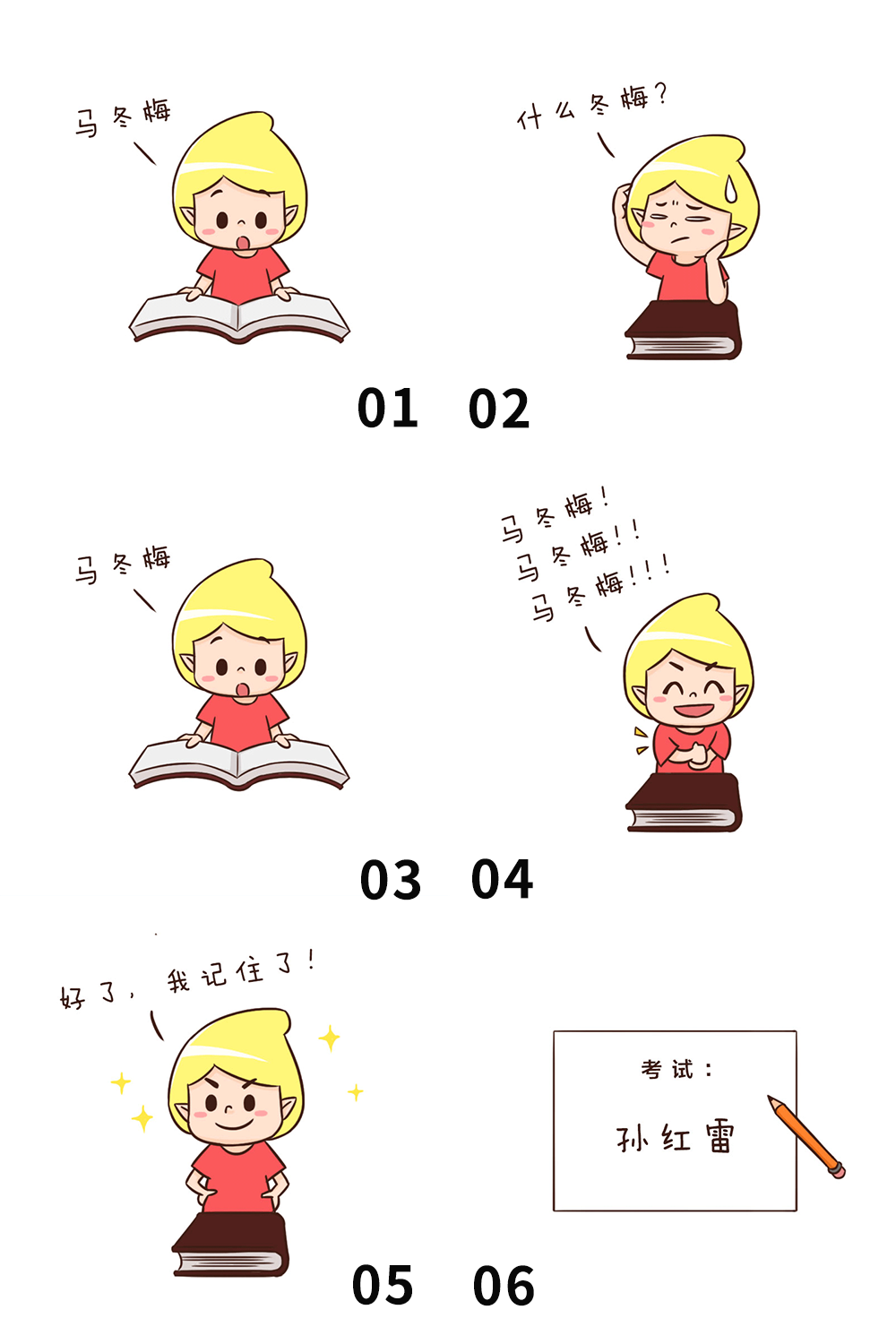


精选推荐
- [记忆方法] 最有效的备考方法,法考如何备考,2021年高考备考:8种高效记忆方法
- [记忆方法] 考前快速大量记忆技巧,最有效的备考方法,考前冲刺:一消备考也要动脑筋,这样记忆方法大多数考生并不知道
- [记忆方法] 怎样快速记忆知识点且记得牢,考前快速大量记忆技巧,会计从业备考不放假,六大归纳记忆法带你飞!
- [记忆方法] 快速记忆方法的小窍门,怎样快速记忆知识点且记得牢,这些记忆方法让你学习、备考的效率大大提升!
- [精品记忆课] 记忆课程有没有效果,记忆力课程,“超强记忆”吸引家长买了课,没上几节校长就失联,41名家长能要回16万余元的培训费用吗?
- [精品记忆课] 最强大脑记忆训练法视频,记忆课程有没有效果,超强记忆系统课_第2节 底层逻辑篇 超强记忆系统课_第2节
- [古诗词记忆] 孩子记忆力差,背书困难怎么办,有什么快速背书的方法,有用的背书方法,快收藏码住吧~
- [记忆方法] 记忆的方法和技巧,记忆宫殿训练方法,技巧:熟记这些顺口溜,轻松记忆历史朝代知识
- [记忆方法] 历史朝代记忆口诀,记忆的方法和技巧,我国历史朝代顺序记忆口诀
- [古诗词记忆] 文科怎么背怎样才能记得住,文科背书怎么背得快又牢固,文科成绩难提高?你需要这12个方法



